
ACT
ACT is a Horizon 2020 project that seeks to advance gender equality at universities, research centres and research funding organisations. It aims at addressing common needs and improving assessment on gender equality in HE & R&I regarding three fields: gender balance in career progression, gender balance in decision-making positions, and integrating the gender dimension into research content and teaching. The ACT project will set-up and support an international network of Communities of Practice (CoPs) as agents to develop gender equality actions at research performing and research funding organizations in the European Research Area.
Visit website
CO-CHANGE
: Increased interactions between R&I stakeholders in our societies require changes at research funding and performing organisations to accept inputs from citizens and organisations that used to be considered outsiders to the world of R&I. Co-Change inspire such changes by introducing new practices in the areas of research ethics, open access, citizen engagement, gender equality and science education.
Visit website
EU-Citizen.science
EU-Citizen.Science is being developed by 14 consortium partners and 9 third parties, from 14 European Member States, as well as other project supporters. These represent a variety of stakeholders, including universities, NGOs, local authorities, CSOs and natural history museums. Many partners are also engaged in other SwafS projects related to RRI, co-creation and citizen science, as well as numerous initiatives at national and local levels
Visit website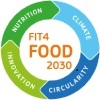
FIT4FOOD
FIT4FOOD2030 supports the urgently needed transformation of research and innovation (R&I) on Food and Nutrition Security (FNS) in Europe. This transformation is needed to future-proof the European food systems: to make them more sustainable and resilient, and to find solutions for the many food-related challenges Europe is facing, including hunger, malnutrition, obesity, climate change, scarce resources, and waste. To achieve that, FIT4FOOD2030 will create a sustainable, multi-stakeholder platform, mobilising a wide variety of stakeholders at the level of cities, regions, countries, and Europe. FIT4FOOD2030 is a ‘Coordination and Support Action’ funded by the European Union’s Horizon 2020 research and innovation programme.
Visit website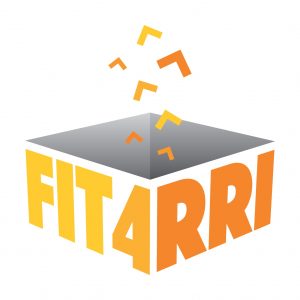
FIT4RRI
FIT4RRI moves from the assumption that there is a serious gap between the potential role Responsible Research and innovation (RRI) and Open Science (OS) could play in helping Research Funding and Performing Organisations (RFPOs) to manage the rapid transformation processes affecting science (especially the science-in-society aspects) and the actual impact RRI and OS are currently having on RFPOs, research sectors and national research systems. FIT4RRI is precisely intended to contribute in bridging this gap, promoting viable strategies to activate institutional changes in RFPOs. The project, in particular, will act on two key factors i.e. i) Enhancing competences and skills related to RRI and OS through an improvement of the RRI and OS training offer (in terms of training tools, actions and strategies) presently available; ii) Institutionally embedding RRI/OS practices and approaches by promoting the diffusion of more advanced governance settings able to create an enabling environment for RRI and OS.
Visit website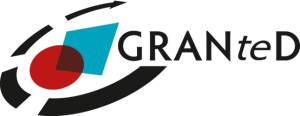
GRANteD
GRANteD investigates the occurrence and causes of gender bias in the allocation of research grants.
Visit website
GRRIP
GRRIP project is working on creating a sustainable, growing and proactive marine and maritime RRI community. The purpose of the GRRIP project is to deliver a practical RRI framework for implementing institutional and cultural change in marine and maritime research organisations. GRRIP will embed sustainable RRI practices in 4 research performing organisations (RPO) and 1 dual-function RPO and research funding organisation (RPO/RFO) (total 5 RPO&RFO) in the marine and maritime sectors to achieve institutional and cultural change.
Visit website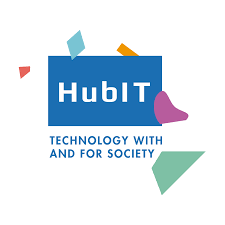
HUBIT
The Hub will activate constructive interactions between ICT developers, SSH researchers and other stakeholders (e.g. NGOs, citizens and users) leading to a responsible approach to research and innovation through the uptake of SSH expertise and RRI actions;
Visit website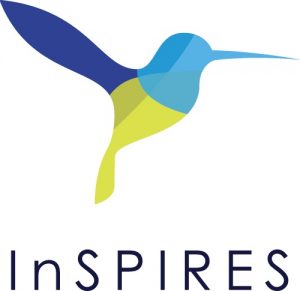
InSPIRES
InSPIRES brings together Civil Society, practitioners and other stakeholders from across and beyond Europe to co-design, jointly pilot, implement and roll out innovative models for Science Shops. The InSPIRES models integrate Responsible Research and Innovation, Open Science and Impact Evaluation as part of their DNA in order to open the research process up in a more strategic way. The inputs from systematic impact evaluation studies will be continuously integrated in order to make InSPIRES Science Shops 2.0 models more accurate and responsive to civil society needs and concerns. Concentrating most of its efforts on Research & Innovation in the health and environmental sectors, giving special attention to gender parity and vulnerable groups (women, the elderly, adolescents, migrants and refugees), InSPIRES brings Science Cafés and other public engagement initiatives into its models together with a “glocal” international focus, for more inclusive, context relevant and culturally adapted community-based participatory research and innovation.
Visit website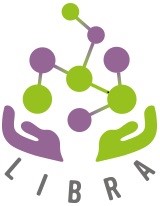
LIBRA
The overarching goal of the LIBRA project is to increase the representation and participation of women in leadership positions in life sciences. Specific and measurable objectives of the project are: 1. Assess gender inequalities in the partner institutes through qualitative and quantitative data collection 2. Design and launch tailored Gender Equality Plans, which tackle specific challenges and barriers in each partner organisation 3. Remove gender-barriers and improve policies and practices in recruitment, especially at principal investigator level 4. Promote career development and offer training activities 5. Improve work-life balance at the research institutes 6. Raise awareness about the gender dimension of research, gather evidence and develop innovative training modules 7. Set measurable and realistic targets and carry out continuous monitoring via indicators 8. Disseminate the project results and reach out to other research institutions, industry, funding agencies, and policy makers
Visit website
NewHoRRizon
NewHoRRIzon is a project that aims at further integrating Responsible Research and Innovation (RRI) in the research and innovation systems on national and international levels. The concept of RRI is an approach which intends to bridge gaps between science, research and innovation communities and society at large by fostering more inclusive, anticipatory, open and responsive research and innovation systems. In this frame, multiple stakeholders (from research, business, policy making, education and civil society) are involved in research and innovation on the project and system level to better align its processes and outcomes with the values, needs and expectations of society. A first big step was the operationalisation of RRI into the following six key elements: ethics, gender equality, governance, public engagement, science education and open access.
Visit website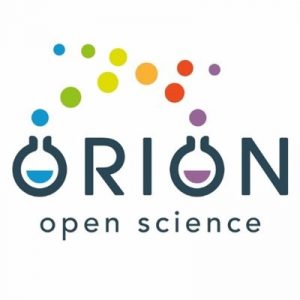
ORION
ORION is a 4-year project (runs from May 2017 to April 2021) that has received funding from the European Union’s Horizon 2020 research and innovation programme under the Science with and for Society (SWAFS) Work Programme. Orion will explore ways in which research and funding organizations in life sciences and biomedicine can open up the way they fund, organize and do research. The project aims to trigger evidence-based institutional, cultural and behavioural changes in Research Funding and Performing Organizations (RFPOs), targeting researchers, management staff and high-level leadership.µ Orion’s long-term vision is to “embed” Open Science and Responsible Research and Innovation (RRI) principles (ethics, gender, governance, open access, public engagement, and science education) in RFPOs, in their policies, practices and processes to organize and do research.
Visit website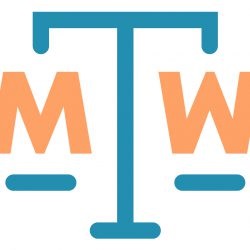
R&I PEERS
The R&I PEERS project aims to create and validate pilot experiences that disrupt gender-biased approaches and unconscious rules which limit participation by and careers for women in Research and Innovation. The R&I PEERS project promotes a concept of gender equality that can best be expressed as “women and men enjoy the same status and have equal opportunity to realize their full human potential to contribute to political, economic, social and cultural development, and to benefit fully from the results.”
Visit website
REINFORCE
REINFORCE (Research Infrastructures FOR citizens in Europe) will create a series of cutting-edge citizen science experiments on frontier Physics research, with citizen scientists making a genuine and valued contribution to managing the data avalanche. Citizens will be engaged in the research done in Large Research Infrastructures through a participatory design methodology that will take into account the special characteristics of different target groups, their barriers and constraints, their perceptions and biases and their attitudes and knowledge regarding science. They will use real and simulated data for analysis, simple affordable detectors and instrumentation to measure properties of objects such as cosmic rays, providing among others their contributions in large infrastructure site specific parameters such as environmental impacts and noise. Furthermore, through the use of open data as with dedicated training activities on their use and analysis, citizens will be able to perform their own inquiries, guided and supported by the REINFORCE experts.
Visit website
RETHINK
RETHINK is a H2020 project that will provide a 360° view of the current science communication landscape. It will map current science communication activities across Europe, including those taking place in the currently uncharted digital sphere. It will gain insights from science communicators into their activities and practices. It will seek input from R&I stakeholders who are currently disengaged with science communication. It will explore the ‘sensemaking’ practices of citizens as they seek to understand scientific developments and scientifically important challenges, particularly while using online resources. It will also provide a picture of current science communication training; potentially revealing gaps in its scope given today’s challenges and priorities and revealing science communicators, especially those on digital platforms, who are currently underserved.
Visit websiteRiConfigure
The RiConfigure project seeks to enable the diversification of constellations, institutions and actors in research and innovation (R&I) by engaging stakeholders, enhancing conceptual clarity on new constellations, and disseminating best practices to practitioners and policy-makers. The project centers on stakeholder engagement in four social labs. In the social labs, actors from research, industry, the public sector, and civil society explore how each of them can and do initiate and navigate cross-sectoral collaboration in R&I. Explorations in the labs are complimented by 100+ empirical case studies. On this empirical basis, the project produces a ‘quadruple helix’-framework to provide conceptual clarification on new constellations in R&I. Expanding the circle of engagement to ensure stakeholder relevance, practitioners and policy-makers can provide challenges and inquiries to the project’s explorations through dedicated dialogue events.
Visit website
RRING
RRING Project is initially a research project which is funded through the EU Horizon 2020 Programme. It has a series of research objectives including: →Understanding of the global State of the Art in responsibility in research →Understanding how responsibility may contribute to the achievement of the Agenda 2030 and the SDGs →Understanding and advocating responsibility in research and innovation as not only a moral value, but also as a competitive advantage for excellence in research and innovation.
Visit website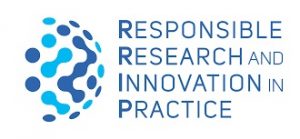
RRI Practice
RRI-Practice is a 3-year project under Horizon 2020. Its aim is to understand the barriers and drivers to the successful implementation of RRI both in European and global contexts; to promote reflection on organisational structures and cultures of research conducting and research funding organisations; and to identify and support best practices to facilitate the uptake of RRI in organisations and research programmes. The project will review RRI related work in 22 research conducting and research funding organisations and will develop RRI Outlooks outlining RRI objectives, targets and indicators for each organisation.
Visit website
RRI-PRISMA
PRISMA is a H2020 project that will conduct pilot studies with 8 companies in order to help them to better integrate Responsible innovation in their innovation process and business practices. These pilots will provide case studies and good practices on responsible research and innovation (RRI). On the basis of the pilots, PRISMA will develop a roadmap that will help other companies also to integrate RRI in their businesses. Several technological fields will be included in the pilots, namely synthetic biology, nanotechnology, self-driving vehicles, and the internet of things.
Visit website
RRI2SCALE
RRI2SCALE is a H2020 project that seeks to embed RRI governance structures in the fields of “smart cities – energy – transportation”, in pilot regions across Europe: Kriti (Greece), Galicia (Spain), Overijssel (Netherlands) and Vestland (Norway). The project links RRI with regional competitiveness, and assists pilot regional authorities to create democratic governance in R&I while fostering innovation at regional scale. To achieve this, RRI2SCALE thoroughly maps the regions engaged, deploys a dedicated stakeholder engagement strategy and leverages foresight and co-creation techniques to bring together societal actors for collective change.
Visit website
SISCODE
SISCODE is an EU funded project aimed at stimulating the use of co-creation methodologies in policy design, using bottom-design-driven methodologies to pollinate Responsible Research and Innovation, and Science Technology and Innovation Policies. In order to achieve this goal, the project consortium will run a European wide research to understand the dynamics within these co-creation environments as well as the outcomes we can obtain from such approaches. These results will then be compared to devise a set of co-creation methodologies suited for scalability and replication. The project understands that experimentation is a key element to succeed in its objectives. 10 co-creation labs spread around Europe will work with design-driven approaches to co-create, generating real life knowledge. They will each select a challenge to tackle with local stakeholders in order to find solutions together. This will give policymakers the opportunity to test new and more open ways in conceiving policies that reconnects policy design with grassroots initiatives and citizens.
Visit website
SPEAR
SPEAR is a H2020 project supporting the implementation of Gender Equality Plans (GEPs) in Research Performing Organisations (RPOs). SPEAR offers supportive structures comprising its interconnected Community of Learning (CoL) and Community of Practice (CoP). The CoL provides learning platforms, while the CoP provides an arena for experience exchange. Both are crucial to a successful and sustainable implementation of GEPs, a key instrument to improving gender equality. SPEAR's central objective is to implement GEPs in its nine implementing RPOs. Based on a step-by-step guide to GEP implementation devised by the European Institute for Gender Equality, SPEAR follows a distinct methodological path committed to creative, open, mitigating, processual, accountable, SMART, and sustainable changes (SPEAR’s COMPASS).
Visit website
TeRRItoria
TeRRItoria is a H2020 project which overall objective is to experiment with the adoption of RRI approaches in European regional and territorial RRI systems, opening these systems to a wider set of actors. TeRRItoria is based on the idea that RRI approaches, policies and practices, developed so far at the level of research institutions, should also be adapted and implemented to that of regional and territorial governance. TeRRItoria will set up a “Territorial RRI” by developing a set of transformative experiments in 5 European selected territories: Region of Central Macedonia (Greece), Region of Emilia Romagna (Italy), Region of Trøndelag (Norway), Region of North-East (Romania) and Municipality of Gabrovo (Bulgaria).
Visit website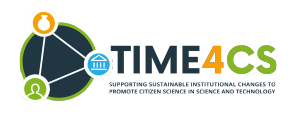
Time4CS
Time4CS is an EU funded project, launched in January 2021, aiming to support institutional and facilitate the implementation of sustainable Institutional Changes in Research Performing Organisations (RPOs) to promote Citizen Science and public engagement (citizens and citizens associations) in science and technology. To facilitate this process, TIME4CS has identified 4 Intervention Areas that alone or combined can stimulate the institutional changes necessary to promote public engagement in R&I activities: Research; Education and Awareness; Support resources and Infrastructure; Policy and Assessment. In this framework, three expert organisations in the field of Citizen Science (Front-Runners) - University College London, Aarhus University, and the Competence Center of the University of Zurich - are working side by side with four implementing organisations (Implementers) willing to foster Citizen Science in their institutions - Tyndall National Institute at the University College Cork, Kaunas University of Technology, Center for Genomic Regulation, and Università San Raffaele. Two organisations act as Facilitators and accompany the partners through the different phases of the project - Agency for the Promotion of European Research (APRE) and the European Science Foundation. The first year of the project is dedicated to planning, co-designing and co-creating grounding actions in Citizen Science for the implementing RPOs, whereas the second year will be dedicated to their implementation, and the third year will focus on their sustainability.
Visit website